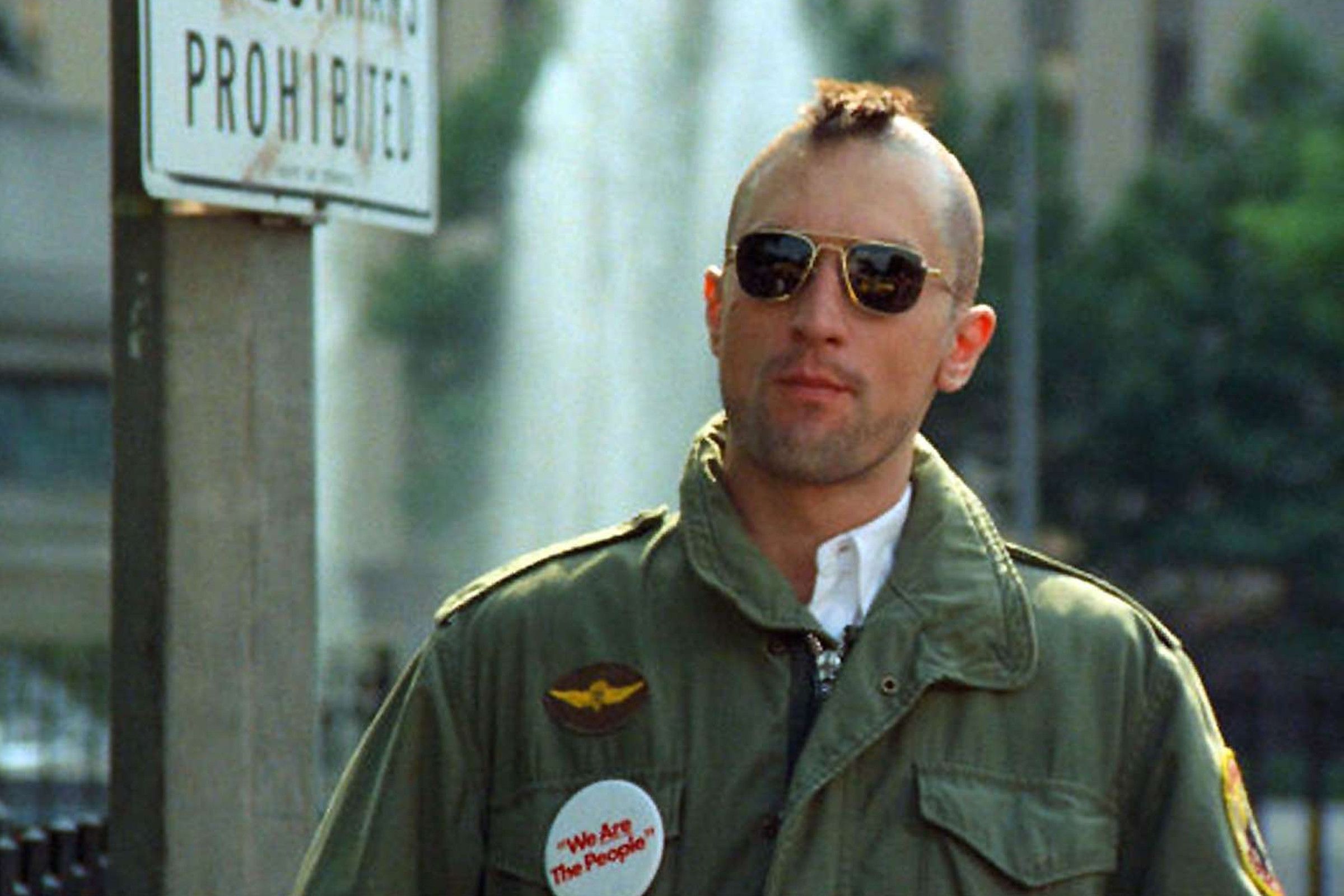Travis Bickle is a Vietnam veteran. DeNiro’s character demonstrates how disillusioned soldiers came home from Vietnam and rejected reintegration with the society they left behind as a response to the atrocities their country ordered them to commit. Even in their hair—grown to extend to “non-regulation length” or shaved into rebellious mohawks—these veterans combined dissonant fashion choices with their leftover military gear as a way of thumbing their noses at the nation that let them down (not to mention the sheer practicality of continuing to wear a perfectly usable wardrobe of clothing).
These style choices spread and an archetype was born; civilians too, started to wear military surplus as a way of broadcasting their displeasure with America’s government. The disillusioned veteran style, with a rumpled M-65 hanging open from shoulders, became a funhouse mirror image of the square-jawed, square-haired, “squares” who we associate with the concept of honorable military service. It’s not that Vietnam made serving in the military cool, it made subverting the military cool.
Today, military surplus inspired looks are seamlessly integrated into mainstream men’s style, from bomber jackets to combat boots. But that wasn’t always the case. As GQ Taxi Driver ’s style, at the time DeNiro’s wardrobe was a “proto-punk style statement.” You don’t have to look very hard to see the film as a countercultural callout. A Vietnam veteran returns home and sets about righting the wrongs he sees in his city (imagined or otherwise), fantasizing about cleansing a rotting nation. The question the very existence of Travis Bickle begs is: Why are we waging war to inflict our way of life on other nations when so much is terribly broken here?
This message resonated with a disaffected public. Screenwriter Paul Schrader recalls going to a early sold out screening of Taxi Driver to see a line around the block filled with young men already cosplaying as Bickle.
“Some day a real rain will come and wash all this scum off the streets,” Travis Bickle predicts ahead of some of some of the film’s darkest moments. This statement is sometimes read as a blind statement of xenophobic rage (The Guardian his American experience.
Schrader identifies the samef feelings of alienation and apathy experienced with such unmoored intensity by Bickle as his motivation for writing Taxi Driver . He told Pauline Kael, the inspiration for the script was deeply personal:
“It’s me, without any brains... The man who moves through the city like a rat through the sewer; the man who is constantly surrounded by people, yet has no friends. The absolute symbol of urban loneliness. That’s the thing I’d been living; that was my symbol, my metaphor.”
Director Martin Scorsese also sees the M-65 and post-Vietnam fashion generally, as an expression of the alienating and dislocating forces of American life. Early in his career, Scorsese had his own neo-hippie phase. For him , the appeal was that, “there was a part of me that wanted to erase everything of where I came from. I had a feeling that I had escaped. I was wearing those cowboy shirts, our hair grew a little...It was really good.”
By identifying as the drifting soldier home from a tour of duty, a young man could recreate his identity, free from burdensome regional identifiers and painful reminders of home. He could, perhaps, be free.




Lifestyle